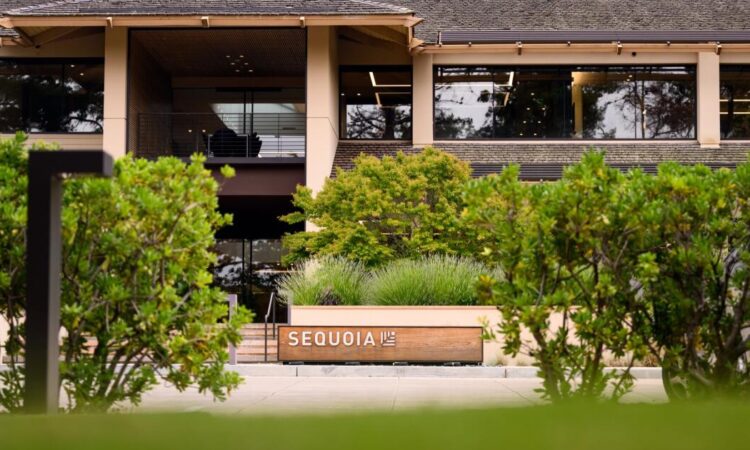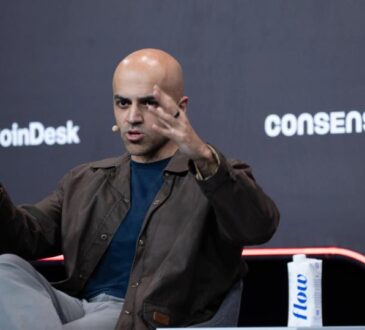Why Sequoia Capital’s leadership change matters for California’s tech investment landscape

Sequoia Capital’s new co-stewards, Pat Grady and Alfred Lin, plan to deepen the venture capital firm’s focus on the artificial intelligence sector while working to reframe its image as less politically partisan following concerns among some partners about the leadership of Roelof Botha, according to people familiar with the matter.
Last week, Sequoia surprised the VC world when it announced Botha would make way for new leaders, Lin, 53, and Grady, 43. Lin and Grady have been the key investors behind many of Sequoia’s most lucrative bets in AI and elsewhere, including OpenAI, Airbnb Inc. and Snowflake Inc. The decision was unanimous and made by partners including Botha and former stewards.
The firm is famously secretive about how it manages generational leadership transitions — one person close to Sequoia described the recent vote as similar to establishing the next pope.
But Botha’s departure followed a series of high-profile disputes, most notably surrounding partner Shaun Maguire. Maguire’s inflammatory tweets in recent months, including about New York Mayor-elect Zohran Mamdani, upset founders and some of the firm’s limited partners in the Middle East, according to people familiar with the matter, who asked not to be identified discussing private information.
Still, several people insisted that Maguire’s political views had no influence on the leadership decision, and that the firm has very few backers based in the Middle East.
Longtime leader
Grady, who is married to venture capitalist Sarah Guo, is the longtime leader of Sequoia’s growth fund alongside Andrew Reed. He was seen as a natural choice to be Botha’s successor, several people said, given his track record with blockbuster investments in Snowflake, Zoom Communications Inc. and Okta Inc. More recently, he led the firm’s bets on legal AI startup Harvey, now valued at $8 billion, and OpenEvidence, a healthcare AI startup valued at $6 billion.
Lin, who leads the firm’s early-stage business with Luciana Lixandru, has also long been a prominent figure in the world of VC, earning major windfalls from early bets on Airbnb, Reddit Inc. and DoorDash Inc. He topped the Forbes ranking of venture capitalists, the Midas List, earlier this year, thanks in part to his investment in OpenAI.
Lin and Grady’s pairing is expected to improve coordination between the firm’s early and growth-stage teams, according to one person, and will help the firm move faster across deal stages.
The changes come after an uncharacteristically tumultuous few years at the firm. In 2023, Sequoia effectively split into three — breaking up with its China and India arms — a dramatic shift that followed a rise in U.S.-China tensions. Last year, the firm underwent a rare public spat over Klarna Bank AB, after a dispute between the startup’s founders. And Lin and other investors were forced to apologize for a messy $214-million bet on the crypto exchange FTX. Most recently, the firm encountered blowback over Maguire’s tweets.
Political tensions
Grady’s appointment could serve as a foil to the outsized online presence of right-wing Maguire, some of the people said. While Botha and Maguire share many political opinions, Grady identifies as politically liberal and Lin identifies as a moderate, people familiar with the matter said. Grady has been among the few people inside Sequoia to publicly address the firm’s recent internal political tensions. In a lengthy July post on X, Grady wrote, “I do not agree with everything my partners say. Aggressive truth-seeking and a healthy conflict of ideas is a hallmark of Sequoia.”
The views and statements from some high-profile Sequoia partners have led to a perception of a firm that identifies with the political right. Maguire has close ties to Elon Musk and he has publicly supported President Trump. Partner Doug Leone also supported Trump in his first run for office and more recently, threw his weight behind Vice President JD Vance. But, in reality, staff members hold a wide spectrum of political views, including many that are liberal, according to people familiar with the matter.
Internally, Sequoia partners have acknowledged that having a single loud political voice that skews to the right hasn’t served the firm’s best interests, some of the people said. At least one partner has considered hiring or elevating a more outspoken left-leaning investor to balance the firm’s political standing, akin to the days when Leone, a staunch Republican, and Michael Moritz, a Democratic megadonor, led the firm. Leone and Moritz led Sequoia together from the 1990s, when founder Don Valentine retired, to 2012, when Moritz stepped back due to an illness.
AI pressure
Sequoia already has an extensive AI portfolio, though some investors feel it could have done more. Its investments include an early bet on Harvey and Glean Technologies Inc., an AI enterprise search application. It also backed OpenAI in 2021, and reinvested in the company at a $300-billion valuation earlier this year. Some inside the firm privately regretted not having invested more aggressively in the company, one of the people said.
As the AI race accelerates, Grady and Lin will face pressure to ensure the firm continues to find a place in the top deals, an increasingly difficult prospect as investors scramble to get a seat at the table of hot companies. At the same time, the firm will have to contend with soaring valuations and fears of an AI bubble.
Clark writes for Bloomberg.




